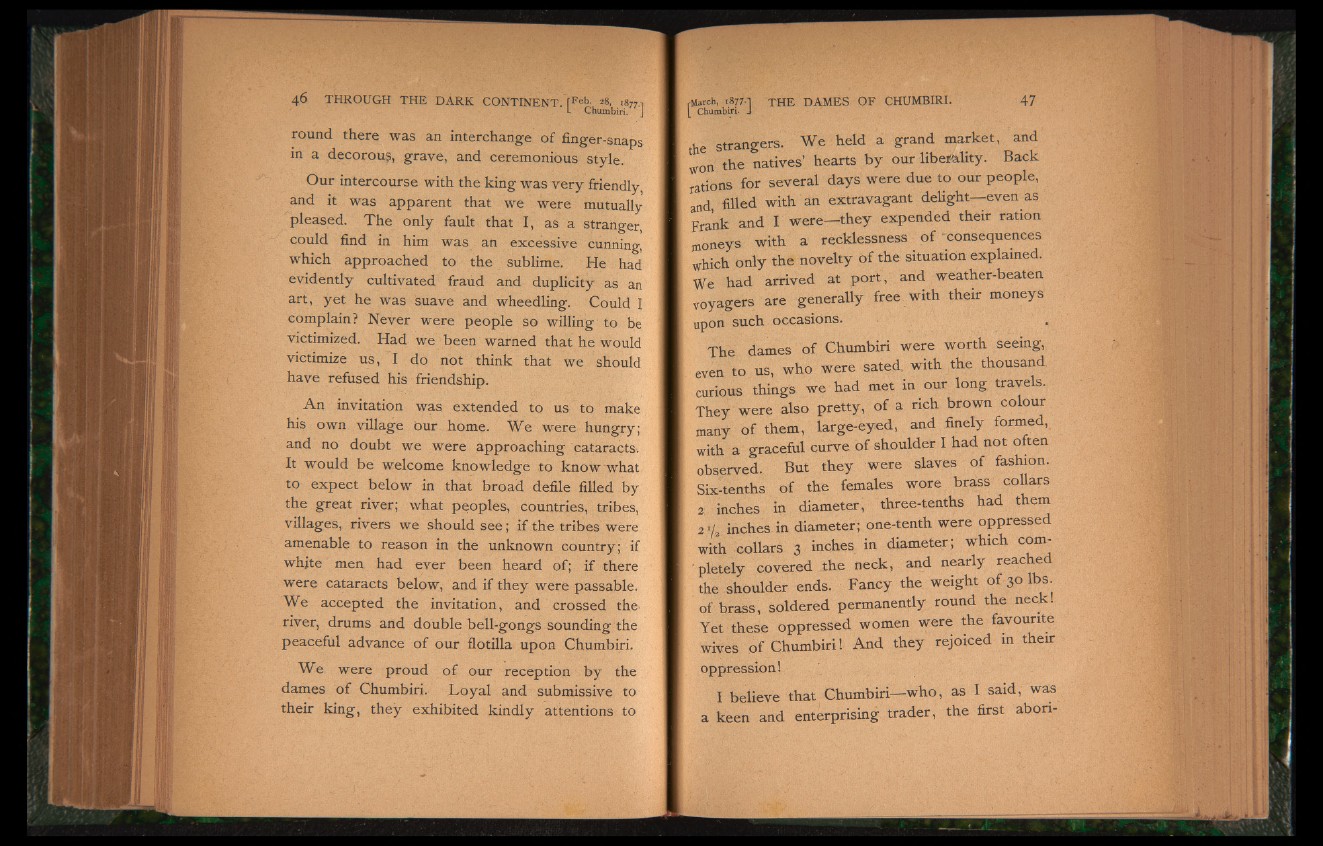
round there was an interchange of finger-snaps
in a decorous, grave, and ceremonious style.
Our intercourse with the king was very friendly
and it was apparent that we were mutually
pleased. The only fault that I, as a stranger,
could find in him was an excessive cunning,
which approached to the sublime. He had
evidently cultivated fraud and duplicity as an
art, yet he was suave and wheedling. Could I
complain? Never were people so willing to be
victimized. Had we been warned that he would
victimize us, I do not think that we should
have refused his friendship.
An invitation was extended to us to make
his own village our home. We were hungry;
and no doubt we were approaching cataracts.
It would be welcome knowledge to know what
to expect below in that broad defile filled by
the great river; what peoples, countries, tribes,
villages, rivers we should see; if the tribes were
amenable to reason in the unknown country; if
white men had ever been heard of; if there
were cataracts below, and if they were passable.
We accepted the invitation, and crossed the
river, drums and double bell-gongs sounding the
peaceful advance of our flotilla upon Chumbiri.
We were proud of our reception by the
dames of Chumbiri. Loyal and submissive to
their king, they exhibited kindly attentions to
rMarch, 1877] th e DAMES OF CHUMBIRI.
[ Chumbiri. J
strangers. We held a grand market, and
w0n the natives’ hearts by our liberality. Back
rations for several days were due to our people,
and, filled with an extravagant delight— even as
Frank and I were—they expended their ration
moneys with a recklessness of -consequences
which only the novelty of the situation explained.
We had arrived at port, and weather-beaten
voyagers are generally free with their moneys
upon such occasions. •
The dames of Chumbiri were worth seeing,
even to us, who were sated, with the thousand
curious things we had met in our long travels.
They were also pretty, of a rich brown colour
many of them, large-eyed, and finely formed,
with a graceful curve of shoulder I had not often
observed. But they were slaves of fashion.
Six-tenths of the females wore brass collars
2; inches in diameter, three-tenths had them
2 Winches in diameter; one-tenth were oppressed
with collars 3 inches in diameter; which completely
covered the neck, and nearly reached
the shoulder ends. Fancy the weight of 30 lbs
of brass, soldered permanently round the neck!
Yet these oppressed women were the favourite
wives of Chumbiri! And they rejoiced in their
oppression!
I believe that Chumbiri— who, as I said, was
a keen and enterprising trader, the first abon